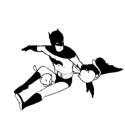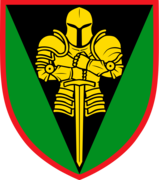|
Dameius posted:If I were a player on that, my first question would be, what's up with the island on the top left? What would I know about that place? Let's go there. Is that by design or just a blindspot in your filling in details? Same thing, first thing I thought was 'What is the name of that island?' - sounds like the Dread Isles to me. What is the name of the mountain range? As a player I would also like to know what the succession situation is with North - is he in failing health, have no heirs, etc. Is there court intrigue? Is he a popular leader, unpopular?
|
|
|
|

|
| # ? Jun 4, 2024 18:32 |
|
Count North is in good health, but is the son of a bastard and there could be scenarios where the other nobles decide to call this out in support of North's cousin. If the actions of the party, who represent Lord North, piss off enough people it could lead to a fissure in the county. Alternatively if one of the players wants to play a viable claimant to the county and the other players are happy about this then I could go for that. The mountain range is called the "Two Serpents" because the local myth is than an angel turned two serpents to stone forming the two main ridges of the mountain. These ridges are named after the serpents of the myth: Sheoleth and Baranid. The local miners don't take this seriously and call them Sheila and Brenda. Azza Bamboo fucked around with this message at 18:36 on Apr 18, 2019 |
|
|
|
For the Queen of all Augerland scenery change you could have North's daughter marry the queen's son and the adventurers are demanded as dowry. Also their actions have a chance to destabilize a monastic union etc.
|
|
|
|
Azza Bamboo posted:My table operates a round robin where we all take it in turns to GM. I'm getting stuff together for my turn and made this.
|
|
|
|
Kaiser Schnitzel posted:What did you make your map with? Looks great. Thanks! I made it with Clip Studio and all of my spare time. I'm still tweaking it now. Ceros_X posted:For the Queen of all Augerland scenery change you could have North's daughter marry the queen's son and the adventurers are demanded as dowry. Also their actions have a chance to destabilize a monastic union etc. I'll definitely keep this one in mind if the players look like they're enjoying the intrigue angle. Thanks a lot.
|
|
|
|
Kaiser Schnitzel posted:What did you make your map with? Looks great. Wonderdraft is great for maps too, tho there's some minor fee
|
|
|
|
Yeah I didn't use anything that makes the job easy, I just drew this stuff with ordinary image software and a pen tablet. If you want good advice on how to make a map maybe don't take any from someone who did it the awkward way!
|
|
|
|
My apologies for asking something that seems like a fairly simple math question, that there's lots of searchable discussion about. I'm just kind of confused about the matter: As a Rogue, specifically a Arcane Trickster, would my ideal ranged weapon be a light crossbow, or a hand crossbow? I figure I'd be mostly doing ranged, and I may or may not have enough spare ASIs to get Crossbow Expert, which would let me use hand crossbow twice in a round, provided I have a free hand and don't need my bonus action for anything else. All those guides that rank choices by color can't seem to decide how good/important Crossbow Expert is, basically. The sooner I get the details on this character work out, the sooner I can stop asking stupid questions like this.
|
|
|
|
Liquid Dinosaur posted:My apologies for asking something that seems like a fairly simple math question, that there's lots of searchable discussion about. I'm just kind of confused about the matter: Crossbow Expert lets you unload a second time, but there are so many useful things that a Rogue can do with their Bonus Action that I don't think that it's necessary with a Rogue.
|
|
|
|
Liquid Dinosaur posted:My apologies for asking something that seems like a fairly simple math question, that there's lots of searchable discussion about. I'm just kind of confused about the matter: The reload property doesn't apply because Rogues don't get Extra attack. You can use cunning action to get out of melee range so you don't have disadvantage. So you're really only counting on this feat for the part about using your bonus to attack with a second hand crossbow. You could just use your bonus action to throw a dagger. It's a feat with 2/3rds going to waste already. Is the damage from two hand crossbows vs just firing a light crossbow and throwing a dagger worth a third of a feat? The Missing Link fucked around with this message at 04:18 on Apr 19, 2019 |
|
|
|
The Missing Link posted:The reload property doesn't apply because Rogues don't get Extra attack. You can use cunning action to get out of melee range so you don't have disadvantage. So you're really only counting on this feat for the part about using your bonus to attack with a second hand crossbow. You can use the bonus action from CBE to fire your main-hand Hand xbow a second time. The ability to fire in melee is also nice.
|
|
|
|
That is true.
|
|
|
|
Liquid Dinosaur posted:My apologies for asking something that seems like a fairly simple math question, that there's lots of searchable discussion about. I'm just kind of confused about the matter: Get Hasted. Light Crossbow attack (haste) with Familiar advantage > Bonus Action Hide > Ready Attack with a suitable triggering condition > Attack with advantage during a different turn to get another sneak attack > repeat.
|
|
|
|
Liquid Dinosaur posted:My apologies for asking something that seems like a fairly simple math question, that there's lots of searchable discussion about. I'm just kind of confused about the matter: Have you made the character yet? Another option is to make an elf with the Elven accuracy feat. You only lose one stat point, your range will be much better and since you can hide with a bonus action to you will be attacking with super advantage most of the time. The math should be similar so the real choice is what image of a character do you like more? The sniper who ducks in and out of cover, or the medium range gunslinger? Also keep in mind the normal range on a hand crossbow is only 30ft, so you will have to be in movement distance of almost everything if you want to not be disadvantaged.
|
|
|
|
Kung Food posted:Have you made the character yet? Another option is to make an elf with the Elven accuracy feat. You only lose one stat point, your range will be much better and since you can hide with a bonus action to you will be attacking with super advantage most of the time. The math should be similar so the real choice is what image of a character do you like more? The sniper who ducks in and out of cover, or the medium range gunslinger? Also keep in mind the normal range on a hand crossbow is only 30ft, so you will have to be in movement distance of almost everything if you want to not be disadvantaged. That's why you make sure to pick someone with fleet of foot. 40 ft movement means you can typically stay out of reach.
|
|
|
|
I've got a tricky encounter-building situation on my hands, and could use some advice. I run an after-school D&D 5e game for a group of teens and tweens which has been going for a few years now. It was their first RPG, and I indulged their short attention spans with a campaign concept that would allow them to make multiple characters based out of their stronghold and rotate through them, shamelessly stolen from CRPGs like Baldur's Gate 2 and Dragon Age: Inquisition. Now they're reaping the whirlwind for some questionable decisions. Many sessions ago, the party went to great effort to make a deal with a chaotic and capricious nature demigoddess, Díherva, and got her to incarnate in the mortal world, abandon most of her divinity, and start gathering power and followers up to destroy their mutual enemies. Since then, both sides have managed to damage that alliance to the point where the PCs are planning to ambush and destroy her. Theyíve been explicitly told that Díherva is the single most potent combatant in the setting, which was the whole point of getting her to show up. She has an army of wild men, druids, Wild Hunt-esque riders, bound elementals, and so on. Still, they think fighting her (preferably from an ambush in their fortress) is the best route left open to them, and I know them well enough to see that it's because they have this deep roster of PCs that they think they can swarm her with. And in fairness, if they manage to put a couple dozen level 12 PCs in the initiative order with her, and she doesn't bug out fast, they can probably pull it off. But our sessions are already slow because teens with AD&D / on the spectrum have trouble concentrating sometimes, and having each person control 2-4 characters would be a goddamn nightmare that would never end. If they go through with this plan to fight D'herva, I'm considering ruling that each player is restricted only to one PC at a time, and they can send in reinforcements when someone falls, with the assumption that everyone else is busy fighting off her servants while the camera stays on the main fight. But Díherva is going to absolutely brutalize a party of five PCs of their level, and reinforcements trickling in might tip the scales sufficiently given that D&D monsters donít get weaker as they take damage. I'm torn between honoring their willingness to go to these desperate lengths, and the impositions of the system. We're nearing the end of this campaign, and defeating the Goddess Incarnate at terrible cost or being defeated, chastised, and forced to honor their alliance would both be great accelerants toward the endgame, but I'm not sure how to do it while giving both sides their due. Any thoughts?
|
|
|
|
Kestral posted:I've got a tricky encounter-building situation on my hands, and could use some advice. Honestly, if you've got an extra hour and a good idea of the PC stats, I'd consider just trying out the battle yourself and seeing what the casualties are like. I'd also consider stealing from video games and having a "This is the end game, people may die, are you sure you want to continue?" moment. As for the mechanics, I agree you should do some sort of reinforcement system, and balance around that. Asking them to juggle four or five players seems more draining than entertaining. Finally, don't worry about honoring the NPCs or making sure the players reap the fruit of their decisions - in my opinion always remember that the players are the heroes.
|
|
|
|
Kaal posted:Honestly, if you've got an extra hour and a good idea of the PC stats, I'd consider just trying out the battle yourself and seeing what the casualties are like. I'd also consider stealing from video games and having a "This is the end game, people may die, are you sure you want to continue?" moment. As for the mechanics, I agree you should do some sort of reinforcement system, and balance around that. Asking them to juggle four or five players seems more draining than entertaining. Just checked the math on that fight, and the casualties are about as grim as expected. Played aggressively and tactically, they lose a PC every 2 rounds, faster if she gets into the casters and rogues, and it takes them about 8-10 rounds going all-out to bring her down if they're getting reinforced as fast as they die. They are hilariously outgunned by the superweapon they brought into existence, cultivated for over a RL year's worth of sessions, and then betrayed. It's like watching someone fall down a flight of stairs. On the other hand, if they manage to ambush her and unload all their magical firepower into her, and she somehow doesn't manage to fly away, they'll probably bring her down in three rounds or so. We had the OOC "do you want to continue?" moment, and they're still set on it. I'm planning on highlighting some other potential ways out of this situation, but I'm preparing for the worst - which is to say, the most mechanically-intensive outcome. quote:Finally, don't worry about honoring the NPCs or making sure the players reap the fruit of their decisions - in my opinion always remember that the players are the heroes. Normally, I agree with you on this. But in this case, they've worked really hard to bring a dark fate on themselves, knowing full well the consequences. Young teens in particular are boundary-pushers, and while I don't punish players, I do respect their decisions. Sometimes, heroes fail, or pay a terrible price for victory.
|
|
|
|
I can't know what conflicts with your setting but maybe she has different aspects that need to be defeated at the same time? Then instead of a massive 20-man fight or something with replacements, you get a series of fights that can happen on successive sessions. Presumably her plans in this world are far reaching and she'd have reasons to be in multiple places at once? Just guessing here.
|
|
|
|
Can anyone tell me the name of that weapons supplement that gave each weapon special properties and generally made weapon choices more interesting ? I remember seeing it earlier but can't find it again.
|
|
|
|
How about dividing the fight up into phases? Instead of one super powerful goddess entity (read: one overwhelming stat block), split her up into three different monsters. When they beat her first form, she morphs into the second form, etc. You can either make the difficult escalate with each phase, or actually change the nature of the fight with each phase. This way you can enforce the "1 player 1 PC" with reinforcements idea without the monster smoking PCs in rapid succession.
|
|
|
|
Apparently one of my players was under the assumption that literally every encounter in D&D 5e is balanced wrt the players, and has been under the assumption that he can overcome any obstacle thrown at him. So when Strahd showed up to talk to the players, he decided to run head first at Strahd (which is fine) and then got very mopey when Strahd bit him for big damage, and then threw him like a rag doll.
|
|
|
|
DarkAvenger211 posted:Can anyone tell me the name of that weapons supplement that gave each weapon special properties and generally made weapon choices more interesting ? I remember seeing it earlier but can't find it again. Beyond Damage Dice. Also the comprehensive equipment manual is excellent for more interesting weapon properties.
|
|
|
|
Verisimilidude posted:Apparently one of my players was under the assumption that literally every encounter in D&D 5e is balanced wrt the players, and has been under the assumption that he can overcome any obstacle thrown at him. Next time, focus on narrative to showcase that the enemy is particularly dangerous and nefarious. Have characters get ominous chills, introduce environmental effects, provide NPC victims, basically use lair stuff. Every time I've been involved in a problem like that, it's because the DM (and I've been guilty of this too) has softpedaled the narrative so the players don't have a good understanding of the danger that they are in. This can be a particular problem early in a game, when players haven't had much opportunity to adjust to the nuances of a campaign. I remember one game where a brand-new level 7 party got confronted with a mugger in the first session, only to find out in combat that the mugger was backed up by 16 bandit archers concealed on the surrounding rooftops, and the mugger had hundreds of HP and could deal 80 damage a round. The DM mocked the party for being "hobomurderers" by fighting the mugger, but really it came down to a mismatch in expectations - his vision of a weak party being confronted by a masked villain with overwhelming odds wasn't being communicated. Another example would be when I was DMing a game and low-level party came across a Roper, which they promptly charged in and attacked only to be methodically defeated by. I hadn't conveyed to them what a Roper was or that it was particularly dangerous, and so they thought they were supposed to fight it head on. Also, sometimes when players develop a tendency of charging into battle it's because they're feeling like the pace of the game is too slow, or that there isn't enough combat. You can prepare for it as a DM mechanically, but it can still cause problems. This can be a particular issue for players who pick combat-oriented characters and then feel shut-out of roleplaying - or simply disinterested in it. Try to always have at least one good, meaningful fight per session - preferably several. This can be tricky when you've got players that fundamentally want different focuses, but finding some sort of compromise is your role as a DM. All that being said, sometimes killing off a character can be a good way to remind players of their own mortality. Kestral posted:Just checked the math on that fight, and the casualties are about as grim as expected. Played aggressively and tactically, they lose a PC every 2 rounds, faster if she gets into the casters and rogues, and it takes them about 8-10 rounds going all-out to bring her down if they're getting reinforced as fast as they die. They are hilariously outgunned by the superweapon they brought into existence, cultivated for over a RL year's worth of sessions, and then betrayed. It's like watching someone fall down a flight of stairs. On the other hand, if they manage to ambush her and unload all their magical firepower into her, and she somehow doesn't manage to fly away, they'll probably bring her down in three rounds or so. It sounds to me like they do have a path forward via combat, albeit a bloody one, so I'd say prepare a conclusion narrative where their party takes heavy losses but they emerge victorious - ideally stripped down to just one or two favorite characters each for the final chapter. It might be mechanically-intensive, but as long as they're expecting to suffer some casualties I'm sure they'll remain invested and will enjoy subverting the plotline. I'd suggest something along the lines of having a bunch of mooks tying up the reinforcements - something suitably gamey and understandable. Kaal fucked around with this message at 18:33 on Apr 19, 2019 |
|
|
|
Kestral posted:I've got a tricky encounter-building situation on my hands, and could use some advice. Chaotic deity, right? Have her open the fight, pre-initiative, with a spell to summon minions. That wild surges. And have the result be a space-time fracture splitting the group into X number of different combats against shards or facets of her power (plus the aforementioned minions). Then run each fight separately and in sequence. Ideally, some or even most of the shards of her power are still overwhelmingly powerful, but you might make one (the one in the final fight) be an aspect that would logically be weaker than the rest. Maybe one is the goddess' vengeance aspect, and the weak one is her life aspect (which can summon and heal minions but lacks the TPK spells). When all the fights end, there's a flash and all the survivors and corpses on both sides reappear in the original spot. The demigoddess takes damage to her original form proportionate to her injuries in the individual fights. She could also lose aspects of her personality that the PCs defeated, which is great if they kill off her anger, not so good if they murder her love-aspect. I'd think a continuation of the fight at that point would probably be anticlimactic and would expect someone (probably her) to withdraw, leaving behind a bunch of smouldering PC corpses. Although if you want to make things fun, she leaves with the corpses who will become future foes for the surviving PCs. If you really want to be devious, shards of the demigoddess possess the corpses of the PCs from all the combats they lost, and they go haring off in all directions to cause mischief, meaning that they've taken one huge intractable problem and sacrificed PCs to turn it into a bunch of somewhat smaller, somewhat more approachable problems. TPKs can teach, but unless you want to start fresh, jumping to new characters in a hellscape crafted by the old characters is less satisfying and instructive than forcing the surviving PCs to rebuild and clean up their messes the slow, hard way.
|
|
|
|
Can anyone remember the earlier discussion in the thread about how to use passive vs active perception when dealing with traps in a dungeon? I'm trying to recall someones post where they talk about not allowing players to constantly check for traps but instead using passive to see if they notice a trap before encountering it, but otherwise they will, right before triggering it, get a chance to do an investigation/perception check and if they fail, they trigger the trap. I feel like I'm missing something else that was done with this method to account for talking away the chance to search on your own, or maybe that wasn't part of it at all. I'm sorry if this makes no sense. I tried looking through the thread but I can't find that bit.
|
|
|
|
Raar_Im_A_Dinosaur posted:Can anyone remember the earlier discussion in the thread about how to use passive vs active perception when dealing with traps in a dungeon? I know in the GM thread I was given the advice to quite simply let the players tell you whether they are looking out for traps or not and that would take their passive into account. Beyond that, if they don't mention looking for traps I'll probably still do the 'roll before triggering' thing, but behind the screen since I know their modifiers.
|
|
|
|
It was something like Party declares they are looking for traps. Party moves at half speed. Trap detection DCs checked against lead PCs passive perception or investigation and auto detected if equal or lower. If DC is higher PC rolls active perception or investigation and triggers the trap on a fail. On secret doors I'm not 100% but it's the same except DM secretly makes that last roll for active perception / investigation since the outcome for a fail is no knowledge...? clusterfuck fucked around with this message at 21:10 on Apr 19, 2019 |
|
|
|
As a DM I generally only put in traps/secret doors that are interesting in some way. Save or take damage traps or Save or miss out on loot secret doors are boring mechanically. There is no interaction there. They're considered standard dungeon faire but you can spruce them up a bit and have them do actual interesting things to get them to be more interesting in addition to how you handle the actual dice procedure portion.
|
|
|
|
Agent355 posted:As a DM I generally only put in traps/secret doors that are interesting in some way. Save or take damage traps or Save or miss out on loot secret doors are boring mechanically. There is no interaction there. They're considered standard dungeon faire but you can spruce them up a bit and have them do actual interesting things to get them to be more interesting in addition to how you handle the actual dice procedure portion. What's always bothered me, is that 99% of traps are completely impractical in a not-abandoned area. Abandoned, ancient tomb or a hidden away personal treasure trove? Sure, trap that poo poo up. Major walkway in a heavily populated castle or dungeon? That's literally moronic, and no one with half a brain would put traps there unless they don't care about friendly fire and have minions that don't mind death if they misremember a trap location.
|
|
|
|
The Gate posted:What's always bothered me, is that 99% of traps are completely impractical in a not-abandoned area. Abandoned, ancient tomb or a hidden away personal treasure trove? Sure, trap that poo poo up. Major walkway in a heavily populated castle or dungeon? That's literally moronic, and no one with half a brain would put traps there unless they don't care about friendly fire and have minions that don't mind death if they misremember a trap location.
|
|
|
|
The Gate posted:What's always bothered me, is that 99% of traps are completely impractical in a not-abandoned area. Abandoned, ancient tomb or a hidden away personal treasure trove? Sure, trap that poo poo up. Major walkway in a heavily populated castle or dungeon? That's literally moronic, and no one with half a brain would put traps there unless they don't care about friendly fire and have minions that don't mind death if they misremember a trap location. I mean, if they were human operated, it would make more sense at a castle. Like, minions could work a lever-operated trap door, or man well-concealed murder holes for crossbow bolts. You could take a page from historical castles and have people laying in wait at strategic grates with cauldrons of hot oil. And if you want to give the rogue some disarming work, maybe the network of tripwires in a certain corridor are only raised when the castle is an alarm state. You could complement those traps with alarm traps which are always active, and would need disarming in the case of a stealthy approach.
|
|
|
|
Arthil posted:I know in the GM thread I was given the advice to quite simply let the players tell you whether they are looking out for traps or not and that would take their passive into account. Beyond that, if they don't mention looking for traps I'll probably still do the 'roll before triggering' thing, but behind the screen since I know their modifiers. ??? Party (or player) indicates they are being wary of traps. DM indicates that they'll move at half speed (which is really only relevant if they are pressured for time). Player(s) accept. DM asks for Passive Perception/Investigation. DM now points out any trap that would be passively seen. Whenever player get to a trap above their passive, have them (whoever is in front of the marching order) roll an active check to spot the trap. If nobody spots it, welp, time to resolve the effect (they may still have the opportunity to save to avoid, but the option to disarm is now off the table).
|
|
|
|
Narsham posted:TPKs can teach Sadly, not always. What quickly killed my desire to DM, besides having been spoiled by an exceptional and committed DM, was having dumbarse players who assumed that they could get away with anything. I'm not saying that that is the norm and I fully realise that I was just unfortunate, but I tried two campaigns: one was more action-oriented with a small but key element of mystery and the other was essentially a heist scenario, and for some reason I just had players who thought that no matter what the did everything would work out. This led to a total party wipe in the former case and everything going irreparably off the rails in the latter.
|
|
|
|
JustJeff88 posted:Sadly, not always. What quickly killed my desire to DM, besides having been spoiled by an exceptional and committed DM, was having dumbarse players who assumed that they could get away with anything. I'm not saying that that is the norm and I fully realise that I was just unfortunate, but I tried two campaigns: one was more action-oriented with a small but key element of mystery and the other was essentially a heist scenario, and for some reason I just had players who thought that no matter what the did everything would work out. This led to a total party wipe in the former case and everything going irreparably off the rails in the latter. Most groups have assumptions about how the game will go. Sometimes those are weird and bad because they've had terrible DMs, sometimes it's just a different style. When you're DMing you need to adapt, get them to adapt, or meet in the middle. Or else everyone's going to have a bad time. For example: One of my groups has two dudes who took nearly a year to understand that I'm never ever ever going to make them pixelbitch each room and hallway with the consequence for not doing everything exactly in sequence I have in mind using the correct words I wrote down being "TPK and you get laughed at for being a dumb idiot".
|
|
|
|
Elector_Nerdlingen posted:Most groups have assumptions about how the game will go. Sometimes those are weird and bad because they've had terrible DMs, sometimes it's just a different style. When you're DMing you need to adapt, get them to adapt, or meet in the middle. Or else everyone's going to have a bad time. I see your point, and admittedly I was much, much younger then. Perhaps talking to them about it might have helped, but through the mists of time I'm sceptical of that as I think that they were just immature and didn't want to do anything but fight. Even if one has never played D&D before, and these people knew a fair amount about it, I would think that people would naturally realise "We are low-level characters and that is a large blue dragon" and scarper or hide or throw him a literal sacrificial lamb. I think that, on top of just wanting to fight poo poo, they thought that they were heroes and would always win in the end which, to be fair, kind of makes sense. After all, if all of the PCs die, not much else to do. In a video game the player reloads... in a P&P game there isn't a convenient reset button.
|
|
|
|
JustJeff88 posted:I see your point, and admittedly I was much, much younger then. Perhaps talking to them about it might have helped, but through the mists of time I'm sceptical of that as I think that they were just immature and didn't want to do anything but fight. Even if one has never played D&D before, and these people knew a fair amount about it, I would think that people would naturally realise "We are low-level characters and that is a large blue dragon" and scarper or hide or throw him a literal sacrificial lamb. I think that, on top of just wanting to fight poo poo, they thought that they were heroes and would always win in the end which, to be fair, kind of makes sense. After all, if all of the PCs die, not much else to do. In a video game the player reloads... in a P&P game there isn't a convenient reset button. There is no "naturally". There are many ways to play D&D and many ways to imagine the fictional world it takes place in. You think that naturally it's obvious that common sense dictates that they would run from or deceive dragons. They think that it's common sense that they're obviously heroes who will naturally get into fights with dragons. Nobody's objectively wrong about how to play, you're just not on the same page so it sucks for everyone. e: "Fight your way through a series of fair challenges to victory" vs "poo poo's unfair on purpose, adapt or die" has been a common clash of expectations for a very long time. Elector_Nerdlingen fucked around with this message at 07:10 on Apr 20, 2019 |
|
|
|
In the first place, pretty much any encounter strong enough a group would want to evade will involve enemies a PC can't reliably run away from unless they're a Rogue/Monk/Wizard, and specially if the DM fails at adequately telegraphing the enemy's superiority prior to exchanging blows - hell, most DMs think it's common sense to actively attempt to conceal the enemy stats as much as possible, so what gives? Describing a monster or humanoid as looking "scary" or "strong" just isn't enough, you know? You're basically asking the players to metagame if you pit them against something you wish them to preemptively assume they cannot defeat, and if you're using homebrew monsters then even that option is gone. Basically, unless you're running a Combat-as-War game (which absolutely needs to get cleared past the group ahead of time anyway), you need to be real, real careful about putting players into situations were fighting their way through isn't an option. A group that isn't used to OSR-style challenges is generally going to assume that, even if there's of course an element of risk involved, they'll generally have decent odds vs anything the DM puts in front of them or gives as an option to pursue. After all, what does the opposite accomplish? "Hey guys, remember when the Dwarf Fighter failed his at-disadvantage Stealth check and woke up all the Ogres?" "Yeah, the Sorcerer tried to help and went down before the second round!" "And there was no way the 20ft speed Fighter could escape so they mobbed him afterwards." "Only my Rogue, the Monk, and the Wizard that turned invisible managed to escape, because we turned tail the moment we saw the Sorcerer go down." "That sure was real fun for everyone involved, let's do it again!"
|
|
|
|
Raar_Im_A_Dinosaur posted:Can anyone remember the earlier discussion in the thread about how to use passive vs active perception when dealing with traps in a dungeon? If it was my post you're thinking of, the extra bit was the "click" rule. Right after the player fails the active check, the DM says "click" and all players must immediately decide what they are doing in response to the sound of the activating mechanism. Do they drop to the floor, jump backwards, raise their shield over their head, etc. The DM then makes a call based on the trap's mechanism what effect if any that has on the trap. It might give them advantage or disavantage on a save, it might auto fail or auto succeed, might avoid or double the damage.
|
|
|
|

|
| # ? Jun 4, 2024 18:32 |
|
Reveilled posted:If it was my post you're thinking of, the extra bit was the "click" rule. Right after the player fails the active check, the DM says "click" and all players must immediately decide what they are doing in response to the sound of the activating mechanism. Do they drop to the floor, jump backwards, raise their shield over their head, etc. The DM then makes a call based on the trap's mechanism what effect if any that has on the trap. It might give them advantage or disavantage on a save, it might auto fail or auto succeed, might avoid or double the damage. That's effectively how I do it in dungeon world, but I like to be really understated. So I just quietly and in my normal speaking tone say "Axebeard, you've just stepped on a pressure plate. What do y..." and I'm interrupted by everyone shouting about how they're getting out of the way or taking cover or hauling Axebeard out of the way or whatever else.
|
|
|






































